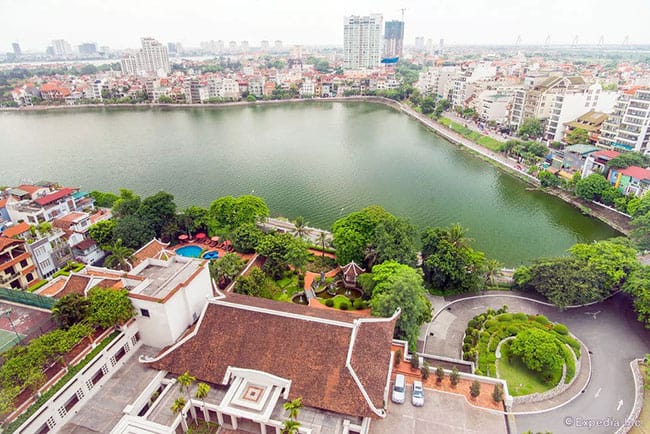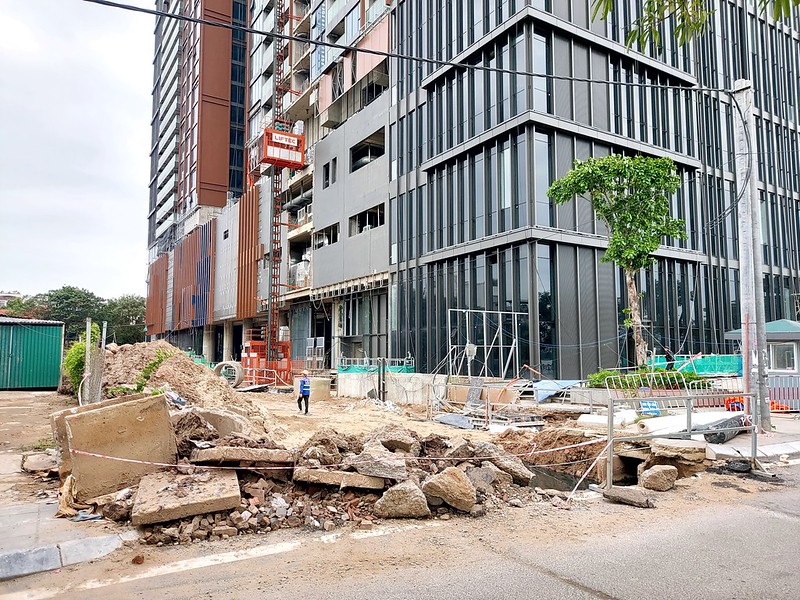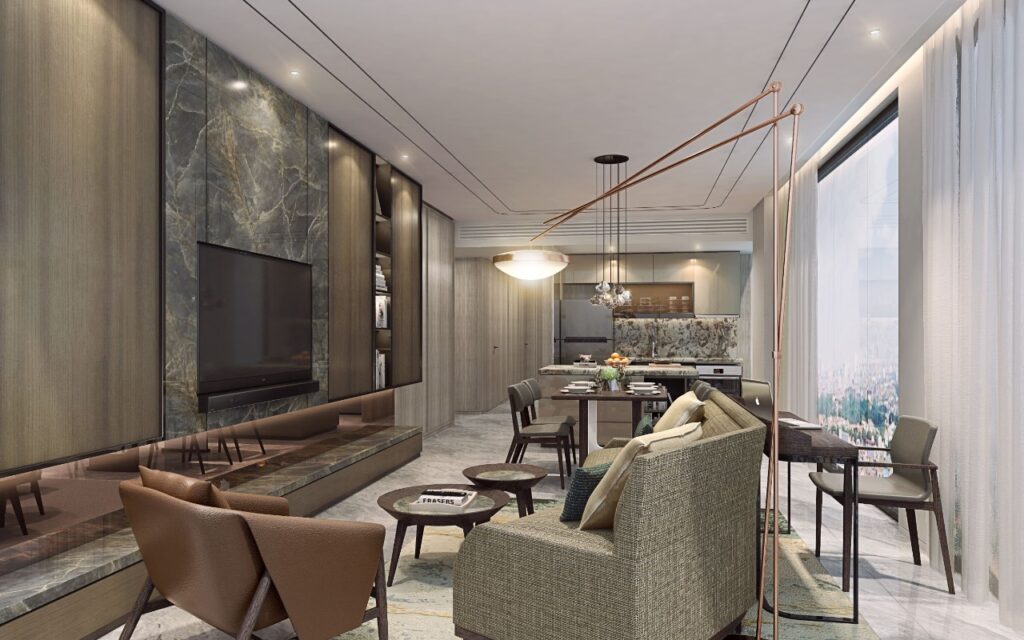Why Are Hanoi’s Rental Prices So High? Let Me Try Explain

I’ll be honest: I’ve rolled my eyes at more than a few Facebook posts lately complaining about how high apartment rental prices have gotten in Hanoi. It seems like every few weeks someone is venting about how much more expensive rent has become, and I get it—it’s frustrating. But before we jump to conclusions and point fingers at real estate agents or landlords, I thought I’d do some “keyboard warrior-ing” of my own and take a moment to break down why rental prices are increasing. Instead of just complaining, let’s take a closer look at the forces behind this shift. Hopefully, this will shed some light on the situation.
The Real Story Behind the Rising Rents
The first thing to understand is that rental prices don’t just go up because someone feels like it. It’s not a plot to make everyone’s life harder. Rental prices rise due to a mix of factors, and understanding those factors can help explain why things are the way they are. So, let’s dive into the reasons behind the rise in apartment rental prices over the past few years:
1. Hanoi’s Economic Boom
Vietnam’s economy has been growing fast, and Hanoi, as the capital, is at the heart of this growth. More people are moving to the city for job opportunities, especially in tech, finance, education, and the startup sector. This creates a ripple effect: more people moving to the city means more demand for housing. The more demand, the higher the prices. It’s basic economics—when more people need a place to live and the supply doesn’t increase enough, prices inevitably go up.

2. Higher Expectations for Housing
As Hanoi becomes a more cosmopolitan city, people’s expectations for apartments have evolved. More people, especially expats and professionals, are looking for modern apartments with amenities like gyms, swimming pools, and 24/7 security. These “nice-to-have” features are now considered standard, not a luxury. Unfortunately, these kinds of apartments come with a price tag. Landlords are responding to the demand by upgrading their properties, and when they do, those upgraded units get rented out at higher prices.

3. Construction Costs and Inflation
It’s not just about higher demand—rising construction costs are also a major factor. And we’re all aware of how much construction is going on around us! Materials, labor, and even land prices have increased in recent years. When construction costs go up, landlords need to charge higher rents to make sure they cover their expenses and maintain their properties. Additionally, inflation affects the cost of everything from utilities to maintenance, and landlords pass some of these costs onto renters. So, when you see a rental price increase, it’s often because the overall cost of owning and maintaining that property has gone up as well.

Image from: https://futuresoutheastasia.com/hanoi-construction-update-2023/
4. Limited Housing Supply in Central Areas
There’s only so much land available in central Hanoi and other sought-after neighborhoods. This limited supply means that, even if demand is high, there simply aren’t enough quality properties to meet everyone’s needs. So, when more people want to live in areas like Hoan Kiem, Tay Ho, or Cau Giay, where the amenities and infrastructure are already well-developed, competition for available apartments drives prices higher. More demand + limited supply = higher prices. It’s basic market dynamics, and unfortunately, it’s not something agents or landlords can control.

Image from https://vietnamdiscovery.com/hanoi/attractions/west-lake/
5. The Role of Foreign Investment and Expat Demand
Let’s be real: foreign businesses are setting up shop in Hanoi, and with that comes an influx of expats looking for housing. Multinational companies, NGOs, and foreign enterprises are choosing Hanoi as a regional base, bringing in employees who typically have higher disposable incomes. These expats are often willing to pay more for apartments that are centrally located, modern, and fully equipped with amenities that cater to their lifestyle needs. As a result, landlords know they can rent these properties at higher prices to expats than they would to locals, which pushes the overall market rates up.

Fraser Suites Apartment
Are All Apartments This Expensive?
Now, here’s the kicker: Not every apartment in Hanoi is overpriced. In fact, there are plenty of affordable options if you’re willing to look outside the most central areas or in older buildings that might not have all the bells and whistles. However, there are some apartments that are significantly overpriced per square meter. These tend to be in the most desirable locations (like Hoan Kiem, Tay Ho, and West Lake) and offer services and amenities that cater specifically to the needs of expats or affluent locals.
For example, an apartment in a central location with a view of West Lake or one of Hanoi’s major landmarks can command sky-high rent, even if the apartment is relatively small. Why? Because the location itself is worth the price for many renters, especially those who want to be close to work, international schools, or the vibrant social scene that central Hanoi offers.
Additionally, these apartments often come with amenities like 24/7 security, maintenance services, swimming pools, gyms, and sometimes even expat-friendly conveniences like shuttle services, cleaning, and concierge services. These added services raise the cost of renting in these buildings, even if the apartment itself isn’t necessarily large or luxurious. For many expats, this level of service and convenience is expected, and they’re willing to pay a premium for it.
However, this can also create the impression that all apartments in Hanoi are overpriced. The reality is, these highly sought-after apartments often come with a price tag that reflects their location, services, and the kind of renter they attract—expats who value convenience and modern comforts. But remember, just because some apartments are overpriced doesn’t mean all rental properties are.
Real Estate Agents Aren’t the Bad Guys
I’ve seen it on Facebook countless times: “The real estate agents are making up prices!” or “They just want to make a quick profit off us!” I get why people feel that way—prices can feel inflated, especially if you’re not familiar with how the market works. But the truth is, real estate agents don’t set rental prices on their own. They’re simply working with the market, which is shaped by supply and demand.
In fact, agents typically rely on comparable properties (comps) to determine rental prices. If an apartment is in a popular area and offers features that meet the expectations of expats (like modern fixtures, amenities, and location), then it will be priced higher—because that’s what the market is willing to pay. Agents are just helping to set prices based on what the market says, not arbitrarily inflating them for fun. So, blaming the agent is like blaming the messenger.

https://www.immoafrica.net/news/signs-bad-real-estate-agent/
Why Locals Often Pay Less
One thing that’s worth mentioning is that local Vietnamese tenants can often negotiate lower rent than foreigners in some cases. Why? Because the income disparity between locals and expats means landlords are willing to rent at lower prices to locals to ensure they have tenants who can afford the rent. Expats, on the other hand, often have higher disposable incomes and can afford to pay higher rents, especially for apartments in prime locations with lots of amenities.
So, if you’re a local renter, you may find that the rent is lower compared to what some foreigners are paying, and that’s not necessarily because landlords are trying to charge foreigners more. It’s just a reflection of the different financial realities.
Conclusion: The Bigger Picture
Yes, rental prices in Hanoi are higher than they were a few years ago. Yes, some apartments are priced ridiculously high, especially those in prime locations with all the bells and whistles. But it’s not a conspiracy—these price hikes are a result of a booming economy, rising construction costs, limited supply of quality properties in desirable areas, and the increasing demand from expats.
While it can feel frustrating to see prices climb, understanding the market dynamics behind these increases can help take the edge off the frustration. And remember, just because some apartments are overpriced doesn’t mean all of them are. If you’re open to exploring different neighborhoods or older buildings, you’ll likely find more affordable options that still offer great value.
Next time you’re tempted to post another complaint about rising rents, maybe take a moment to understand why things are the way they are. It might not lower your rent overnight, but it’ll certainly give you a clearer perspective on the situation.

